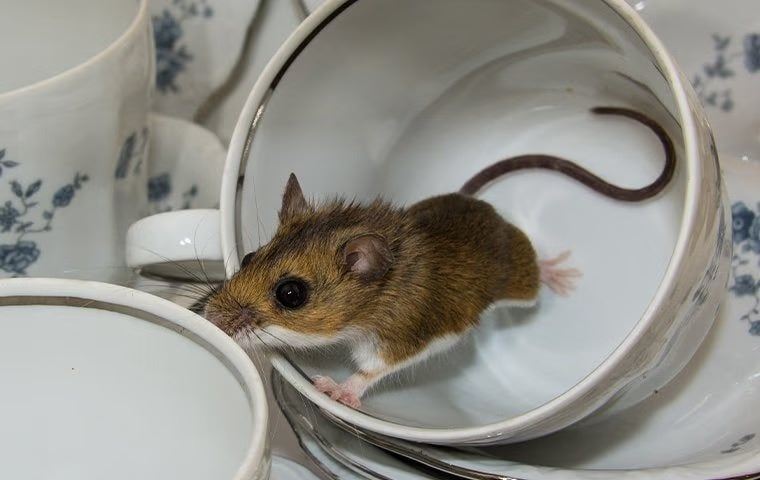
One Little Mouse In My Louisville Home Is No Big Deal, Right?
If you Google "house mouse images," you will see some very cute little animals in some adorable poses. A house mouse looks like the picture of innocence, but these rodents are far from innocent, especially if they manage to get into your home and start a large family! An infestation of house mice can cause many problems, from spreading disease pathogens to chewing holes in treasured items. Today we are talking about the dangers of these mice and what home and business owners can do to protect themselves.
Physical Description Of A House Mouse

A house mouse weighs approximately 12 to 30 grams and can grow up to 20 cm from the tip of its nose to the end of its tail. This type of mouse is covered in short hair which is either light brown, gray, or black, with a lighter-colored underbelly. A house mouse has beady black eyes, rounded ears on the top of the head, and a tail that is about as long as its body.
These rodents are among the most common house-invading pests in the world. That's why they are named "house" mice. And when house mice get into homes, they tend to stay. They build nests in attic areas, wall voids, or anywhere else they can find a hollow, secluded space. If these mice only came into homes to build nests, they wouldn't be too much trouble. But they don't come in to only build nests.
The Dangers Of House Mice
House mice are prolific breeders: One pregnant female can turn into a large infestation of mice in a matter of months. Here are some of the problems mice in your house might cause:
House mice can spread diseases: A few of the diseases that house mice are known to spread are hantavirus, bubonic plague, salmonellosis, and rat-bite fever. Diseases can be contracted through exposure to the rodent's feces, from scratches or bites, or through contaminated foods.
House mice carry parasites that can spread diseases: If house mice get in, they never come alone. Not only can they "invite" other mice inside, but they can be carrying a host of smaller pests in their fur. Mice can carry fleas, lice, mites, and ticks. One tiny house mouse can be the carrier of as many as 100 seed ticks!
These parasites are known to carry diseases of their own. Fleas are known to spread typhus and the plague, as well as "cat-scratch fever." Ticks are known to transmit several diseases including anaplasmosis, babesiosis, ehrlichiosis, Rocky Mountain spotted fever and Lyme disease.
House mice damage things: When these tiny rodents get into a home, there's no end to the damage they can cause if they are not dealt with quickly. Mice, like all rodents, have front incisor teeth that never stop growing. Because of this, they need to chew on things to wear them down, so they do not grow too long. Mice will happily chew on anything from structural components of a home to items that have been carefully stored away for safekeeping. They can even chew on electrical wires inside wall voids, which has been known to cause house fires.
House mice can smell up the place: When house mice build their nests, they neglect to build a bathroom. Mice leave droppings and urine right in their nests, and everywhere else they roam in a house. Some of the places they track urine and feces are inside wall voids, in drawers and cabinets, and on food preparation surfaces. This is one of the ways mice spread illness. If there is enough urine build-up concentrated in one area, it will produce a bad smell.
Spotting One Mouse Likely Means An Infestation
Mice are shy creatures that tend to stay hidden. If you spot one mouse out and about, it likely means that there are many more hiding just out of sight. One female mouse can have from 32 to 56 pups in a year. And each one of her female offspring can begin multiplying at seven weeks of age.

What's the Action Advantage?
Find Out What Makes Us Different!
-
Environmentally-Friendly Products Available
-
After-Hours Answering Service Available
-
70+ Certified Pest Management Professionals
-
Trusted by the Community Since 1946

.2410141124135.jpg)